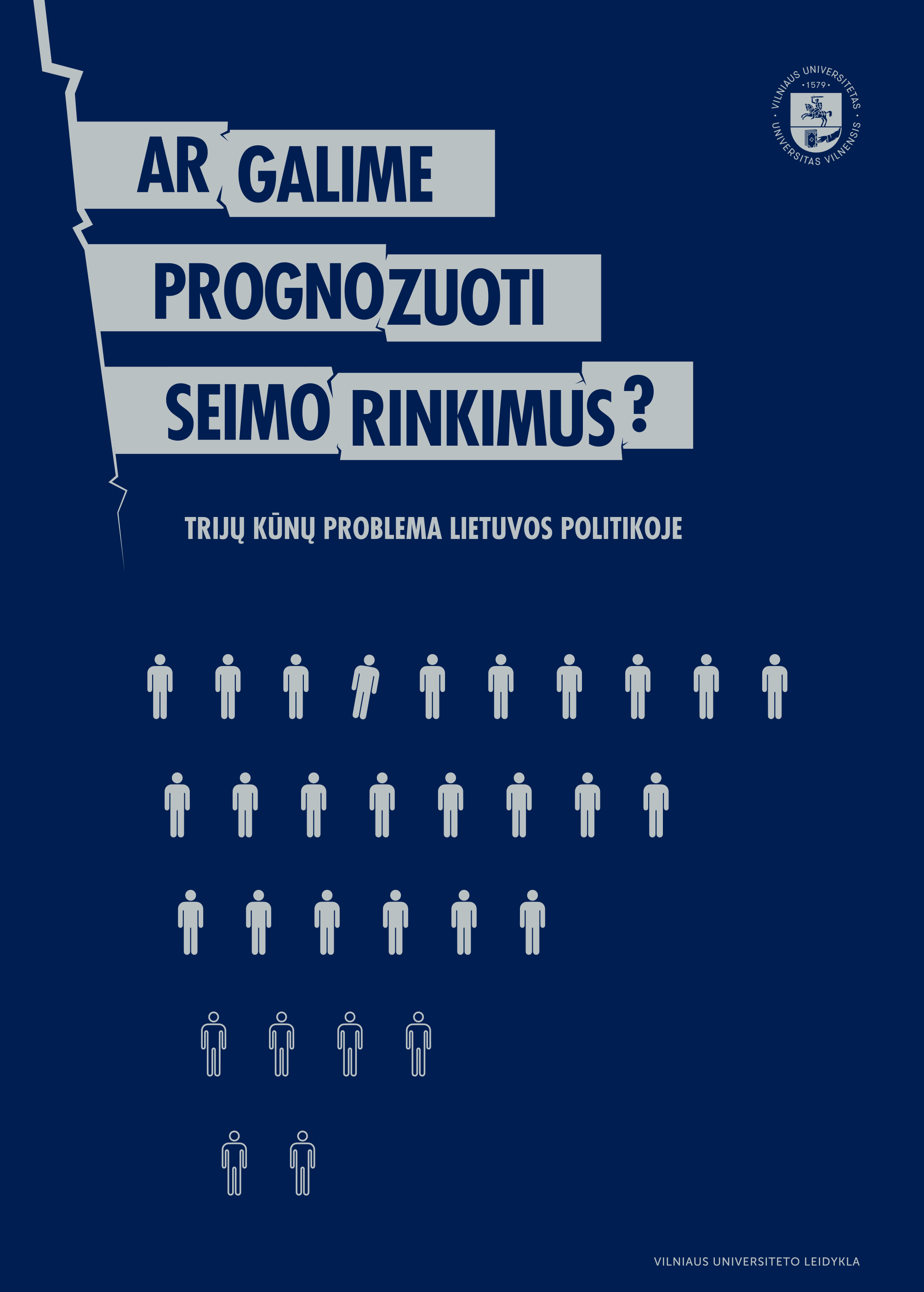
Original title: Ar galime prognozuoti Seimo rinkimus?: Trijų kūnų problema Lietuvos politikoje
Publishing date: 2018
Publisher: Vilniaus universiteto leidykla
Language: Lithuanian
Pages: 404
Description:
Recent studies on the Lithuanian elections revealed trends of seemingly predictable voting behavior and increasing party system stabilization. However, the results of the 2016 parliamentary elections came as a surprise when the previously marginal Lithuanian Union of Farmers and Greens received 56 seats out of 141 (even though it nished second in the proportional tier of the mixed electoral system). This event, as well as the newly available data from the second Lithuanian National Electoral Study, prompted the need for further research. If the Lithuanian voters are predictable, why are the elections not?
The aim of this book is to analyze the factors that determine (and help forecast) the results of the parliamentary elections in Lithuania: is it possible to understand the underlying logic of electoral surprises? Theeoretical framework puts emphasis on the interaction of three main bodies (groups of factors) that determine the electoral results: supply, demand and institutions. Thee empirical study employs a mixed methods approach, resting on the assumption that some research questions are better studied with quantitative (for example, the rival explanations of parties’ voter profiles) and others by qualitative (like the logic of responses to the corruption scandals) factors.
Extensive data from two National Lithuanian Election Studies and other relevant surveys, as well as the official electoral data provided by the Central Electoral Commission (especially the chapters on the electoral system), were utilized in this study.
Research in the book points to a three-body problem when trying to explain and forecast the Lithuanian elections. First, the demand is very unstable: more than a half of Lithuanians do not vote for the same party in two elections in a row, and the cleavage potential is not fulfilled by parties. Second, the supply side is also ever-changing, with corruption scandals affecting voters in di fferent ways. Moreover, the winning formula of political leadership is focused on personal appeal (morality and determination traits in particular) and on an ability to respond to the voters’ elusive hopes for future change, which is in stark contrast to the classical political demands and orientations (a retrospective assessment of performance, political competence or ideology). Third, the predictability of the electoral results is further complicated by the third body, a mixed electoral system with unpredictable effects. The book is concluded with a recommendation for an electoral system reform. [Excerpt]
Cite as: Jastramskis, M. et al. (2018) Ar galime prognozuoti Seimo rinkimus?: trijų kūnų problema Lietuvos politikoje. Vilnius: Vilniaus universiteto leidykla.
Purchase here.







